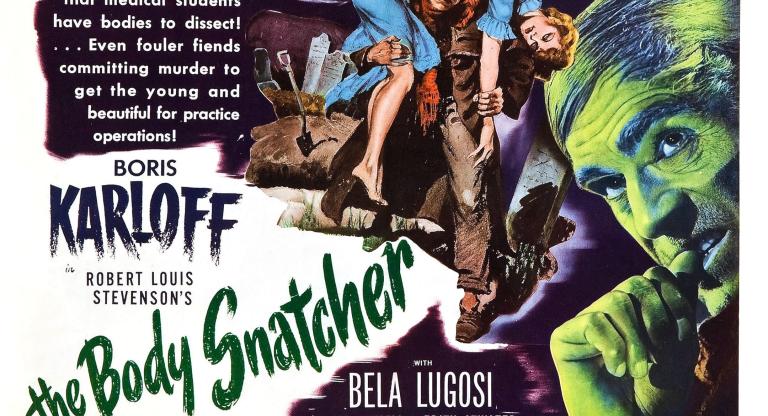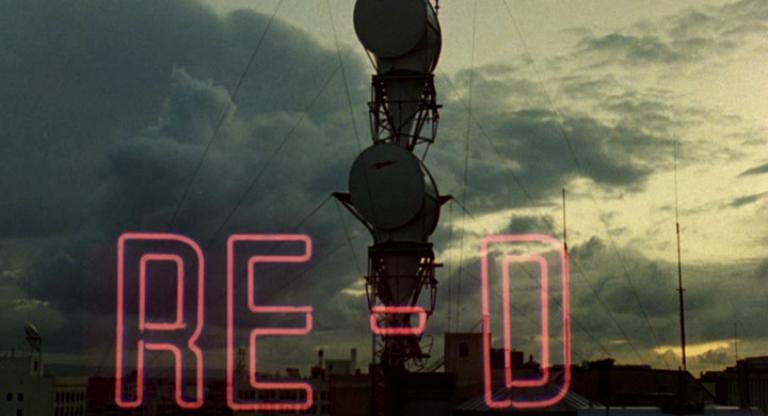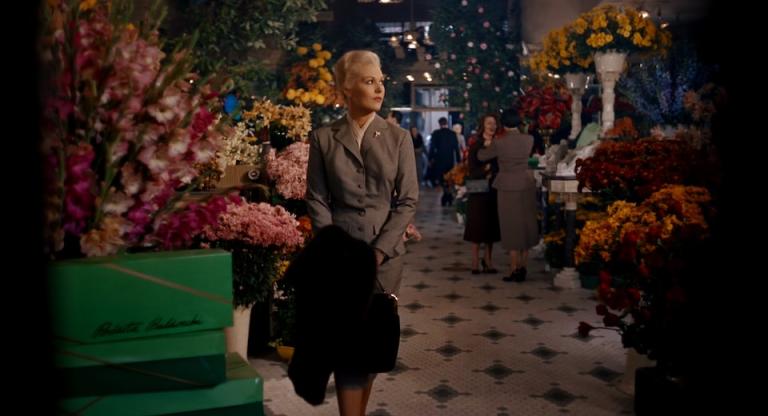Nouvelle Vague icon Juliet Berto mostly ceded the limelight in the 1980s, winding down her acting career to strike out behind the camera. She would make three features before she died of breast cancer at age 43. Her debut, Neige (1982) co-directed with her then boyfriend, Jean-Henri Roger, is suffused with nightlife ambiance and the leftist radicalism of her youth. After she moved from Grenoble to Paris to film Two or Three Things I Know About Her (1967) at the age of 19, Berto became enmeshed in the student protests and demonstrations, while continuing to work with Godard.
Neige, whose title directly translates to “snow,” an allusion to heroin, opens on two musicians against a bedazzled blue backdrop as a plaintive sax moans over Berto’s voiceover. The tracking camera reveals a basement cabaret, slowly snakes upstairs to the bar, and then to a street carnival, where two women dance under the spotlight. There’s something distinctly Rivette-like about the setting—the stages and scenery recall the director’s penchant for theater. The same could be said of the film’s improvisatory looseness, as it’s only about midway through that the plot sets itself in motion. But that’s where the influences end; Berto’s film, rooted distinctly in realism, is undeniably her own.
The film briskly follows Anita (Berto), her boyfriend Willy (Jean-François Stévenin), and a West Indian preacher Jocko (Robert Liensol), through clubs, fry-shops, department stores, boxing gyms, and more. Things are set in motion when Bobby (Ras Paul Nephtali), a young Black dealer and Anita’s de facto son who “keeps slipping through my fingers” is shot and killed by narcotics officers. With an unwavering mother-hen attitude, she takes it upon herself to care for those suffering from withdrawal in Bobby’s absence, cobbling together the money to score on their behalf.
Shooting discreetly on location, Berto casts Pigalle denizens and nonactors, granting Neige an atmosphere of authenticity as it takes us into the vibrant and marginalized community where dealers and addicts, trans people and recent immigrants, sex workers and waiters, and everyone else on the fringes of society stand united against a common enemy. Don’t let the film’s shagginess or exuberantly garish fashions—dalmatian furs, mustard heels, neckerchiefs galore—distract you: this is a striking vision of resistance.
Neige plays Sunday afternoon, September 29, at Alamo Drafthouse New Mission.
Previously:
Neige runs June 23–29 in a new digital restoration at BAM.






